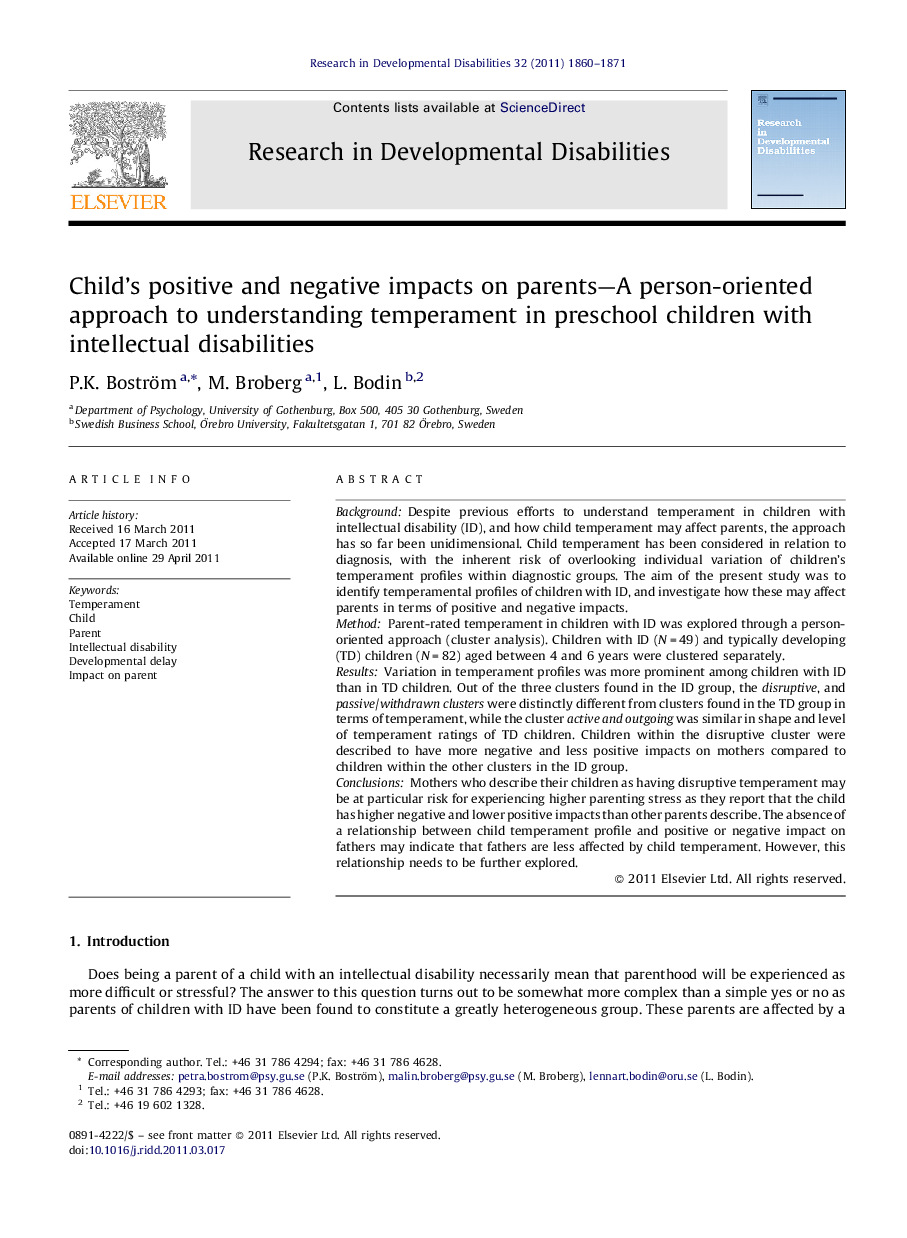| Article ID | Journal | Published Year | Pages | File Type |
|---|---|---|---|---|
| 371722 | Research in Developmental Disabilities | 2011 | 12 Pages |
BackgroundDespite previous efforts to understand temperament in children with intellectual disability (ID), and how child temperament may affect parents, the approach has so far been unidimensional. Child temperament has been considered in relation to diagnosis, with the inherent risk of overlooking individual variation of children's temperament profiles within diagnostic groups. The aim of the present study was to identify temperamental profiles of children with ID, and investigate how these may affect parents in terms of positive and negative impacts.MethodParent-rated temperament in children with ID was explored through a person-oriented approach (cluster analysis). Children with ID (N = 49) and typically developing (TD) children (N = 82) aged between 4 and 6 years were clustered separately.ResultsVariation in temperament profiles was more prominent among children with ID than in TD children. Out of the three clusters found in the ID group, the disruptive, and passive/withdrawn clusters were distinctly different from clusters found in the TD group in terms of temperament, while the cluster active and outgoing was similar in shape and level of temperament ratings of TD children. Children within the disruptive cluster were described to have more negative and less positive impacts on mothers compared to children within the other clusters in the ID group.ConclusionsMothers who describe their children as having disruptive temperament may be at particular risk for experiencing higher parenting stress as they report that the child has higher negative and lower positive impacts than other parents describe. The absence of a relationship between child temperament profile and positive or negative impact on fathers may indicate that fathers are less affected by child temperament. However, this relationship needs to be further explored.
► Two unique temperament profiles were found in children with ID/DD. ► These were distinct from profiles found in children with typical development. ► Temperament profile in children with ID/DD appeared to have an impact on mothers.
